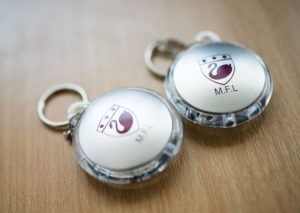MFL at Paulet

What do students learn in MFL in Key Stage 3?
In years 7, 8 and 9 students learn French or Spanish. The language studied is determined by year 7 form groups. Two groups study French and four groups study Spanish. This reflects our current staffing model.
Years 7 and 8 are based around the concept of a holiday abroad.
The students get ready for their holiday in year 7 by preparing their passport for customs and learning how to ask and answer important questions about themselves and their families and friends.
The holiday takes place in year 8 with students learning how to use practical language such as ordering in a restaurant and writing a Tripadvisor review.
Year 9 lessons focus on thought-provoking questions spanning a number of topics (see table below). We investigate and discuss the questions to gain a deeper understanding which, in turn, enriches students’ knowledge of the world around them.
How do students learn in KS3 MFL?
MFL is a practical, interactive subject. Lessons will include aspects of all four key communication skills: listening, speaking, reading and writing.
MFL teachers use a variety of games and software to introduce and practice new vocabulary and grammar. Students can expect to work mostly in pairs or groups while learning French or Spanish.
Each student will have their own year 7 and year 8 support booklet which can also be found in the remote learning folder.
What topics are covered and when in each year group? What is the sequence of teaching?
| Year 7 | Year 8 | Year 9 | |
| Autumn 1 | T1T1 : Identity & relationships with others | T3T1 : Travel and tourism, including places of interest | T1T3 : Education & work |
| Autumn 2 | T1T1 : Identity & relationships with others | T3T1 : Travel and tourism, including places of interest | T1T3 : Education & work |
| Spring 1 | T1T1 : Identity & relationships with others | T3T1 : Travel and tourism, including places of interest | T1T2 : Healthy living & lifestyle |
| Spring 2 | T1T1 : Identity & relationships with others | T3T1 : Travel and tourism, including places of interest | T1T2 : Healthy living & lifestyle |
| Summer 1 | T2T1 : Free-time activities | T2T2 : Customs, festivals and celebrations | T2T3 : Celebrity culture |
| Summer 2 | T2T1 : Free-time activities | T2T2 : Customs, festivals and celebrations | T2T3 : Celebrity culture |
How are students assessed in KS3 MFL?
Year 7 students are presented with real life scenarios such as passport control, describing something theyhave lost and reporting a crime. They are assessed on their ability to communicate in these scenarios.
Year 8 students are also faced with real life scenarios such as ordering in a restaurant, working as a travel agent and writing a Tripadvisor review. These cover all four skills – listening, speaking, reading and writing.
Both year groups are also tested on grammar and vocabulary retention throughout the year. These are based on the home learning forms.
Home learning
Fortnightly home learning Microsoft quiz forms are set via Go4Schools. These forms are based on the vocabulary / grammar that is being covered in lessons at that time. Some forms may be revision / retrieval of prior learning and some forms may prepare students for upcoming learning.
Extra-curricular opportunities
Students are given the opportunity to take part in language events throughout the year such as the European Day of Languages, Valentine’s Day, national and JTMAT language competitions and Eurodisco! We also run amazing trips to both Paris and Madrid!
Cultural capital
In year 7 students gain cultural capital through learning about: the geography of the world, the history of exploration and colonisation, how English has been influenced by other languages, Christmas in France, how to respond to information requests.
In year 8 they expand their cultural capital through learning about: how to book a holiday, understanding menus, discovering exciting places to visit, uncovering amazing celebrations and festivals, Christmas in Spain.
Students are also given a variety of opportunities to enjoy French and Spanish culture such as experiencing a continental breakfast and making crêpes!
